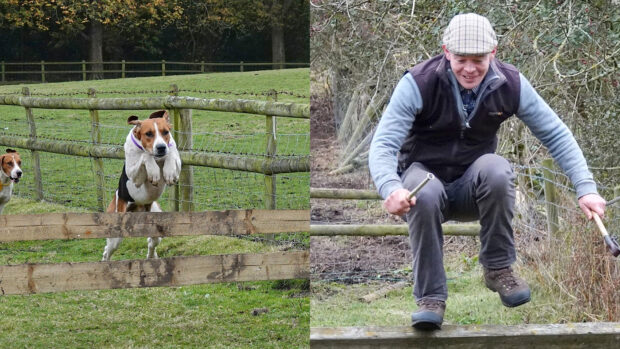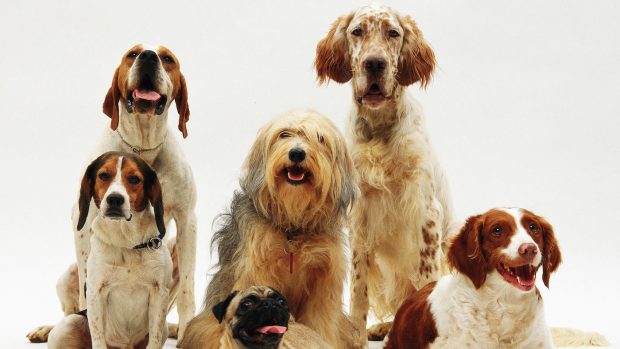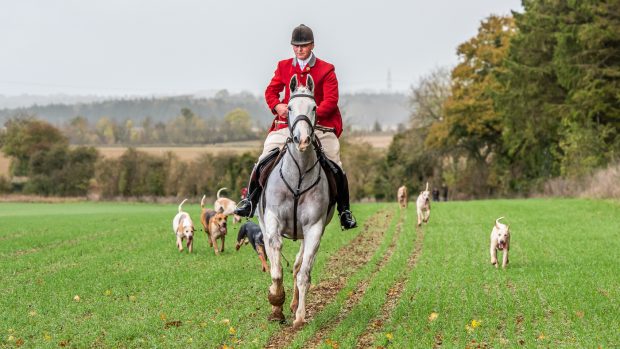A working group set up by the Associate Parliamentary Group for Animal Welfare (APGAW) to investigate the future welfare implications for dogs used for hunting if hunting is banned, has come under the spotlight as its motivations and ability to cast an impartial judgement are called into question.
APGAW is a long-standing cross-party parliamentary group made up of more than 100 MPs, Lords and associate animal welfare organisations which aims to promote and further the cause of animal welfare by all means available to the parliaments at Westminster and in Europe.
The working group was set up in November 2003 in response to a letter from the Kennel Club, which voiced concerns to MPs that “the fate of dogs involved with hunting does not appear to have been considered”. The group set themselves the explicit task of “considering the future welfare of dogs used for hunting in the event of a ban”, and added, “not the extremely complex issues surrounding hunting itself”.
The working group has invited submissions from all interested parties and has formulated a questionnaire to be delivered verbally by telephone to huntsmasters, which includes questions such as whether the hounds become toilet-trained. The Master of Foxhounds Association has dismissed the questionnaire as “disgraceful”, and has advised kennel staff not to respond.
The MFHA also implied that the make-up of the working group destroyed any potential notion of its impartiality. The officers of the APGAW who approved the establishment of the group include MPs Tony Banks and Norman Baker, as well as APGAW chairman Ian Cawsey, all of whom voted in favour of a ban on hunting in June 2003.
The working group is chaired by Ian Cawsey, and includes representatives of dog welfare organisations such as the Dogs Trust and the Kennel Club. The Dogs Trust and the Kennel Club have both stated they have no position for or against a ban, although they are concerned about the implications of a ban on hunting for the future welfare of hunting dogs.
While Ian Cawsey stated that the group would like “to produce a report based on evidence provided by people who are responsible for hunting dogs”, there is a notable absence of any such parties in the working group. The chairman told HHO this was because the group “wanted to get away from the sterile hunting argument”. One of the more prominent members of the group, however, is Dominic Rudd, director of animal welfare services at the RSPCA, an organisation which actively promotes its anti-hunting stance.
In a statement about the working group, Mr Rudd said: “The RSPCA have a wealth of experience in placing unwanted animals in loving new homes and caring for those that are sick and injured”. He continued, saying that that RSPCA “cares about the future welfare of the hounds and would seek to see them re-homed rather than shot en-masse.”
The prospect of re-homing upwards of 20,000 hounds is seen as neither rational, nor humane, not only among hunting folk, but also among other dog welfare groups.
Helen Tennant, Battersea Dogs Home spokesperson explained that in spite of the organisation’s vast experience in re-homing dogs, they would find it “very difficult, if not impossible, to re-home ex-hunting dogs”.
Lembit Opik, MP and co-chair of the Middle Way Group, voiced his anxieties about this matter: “If the group comes to the sensible conclusion that these hunting dogs neither do nor will make good pets, then their investigations will have been worthwhile.
“I suspect, however, that their intentions are political, and while I am an optimist, I suspect in practice that the pro-ban lobby has awoken to the public relations disaster that would occur as a result of a ban: that is, the mass extermination of more than 20,000 dogs which would have suddenly been made redundant.”
Although the group has not specified a date for the publication of its findings, it hopes to have a preliminary report by the end of the parliamentary year.



